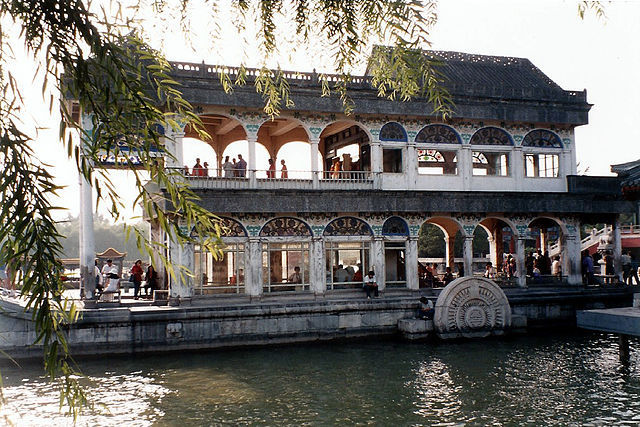
Cixi's Marble Boat
Summer Palace, Beijing

|
Cixi's Marble BoatSummer Palace, Beijing |
It was joked that this marble boat was Cixi's entire navy, the implied criticism being that the Empress wasted the nation's wealth on fripperies. Actually it is a teahouse, cleverly shaped in the form of a Mississippi paddle-wheeler, and illustrates a keen 19th century Chinese interest in all things Western. A working steamboat, still on view nearby, was constructed to ferry the Empress around Kunming Lake. While this was going on, and while the Chinese literati were still debating the proper response to Europe's challenge, the Japanese were constructing factories and armaments, and transformed their island society into a Western-style military and economic power that humiliated China in the Sino-Japanese War of 1894-95.
Cixi has always received a bad press. Mounting a grossly ineffective response to the Western colonial powers, the Empress was swayed to and fro by her advisors, and spent most of her energy in keeping personal power; she ruled, in collusion with her eunuchs, as regent to several child-emperors, each of whom she murdered before they could attain their majority.
On the other hand, it can be said that Cixi was an astute politician. She understood the threats to her empire, and did her best to respond to them, but was fatally hampered by the inertia of her ministers and of China as a whole; "We have no need for the manufactures of outside barbarians,” the Emperor Qianlong said to Britain’s Lord Macartney in 1793. That attitude, however reasonable from Qianlong's point of view it may have seemed at the time, could not be overcome by even the greatest efforts of progressive Chinese thinkers in the following century, and ultimately proved fatal to the continuance of the Qing dynasty.

|

|